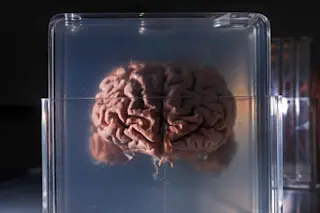A paper in PNAS got some attention on Twitter recently. It's called Childhood trauma history is linked to abnormal brain connectivity in major depression and in it, the authors Yu et al. report finding (as per the Significance Statement):
A dramatic primary association of brain resting-state network (RSN) connectivity abnormalities with a history of childhood trauma in major depressive disorder (MDD).
The authors go on to note that even though "the brain imaging took place decades after trauma occurrence, the scar of prior trauma was evident in functional dysconnectivity." Now, I think that this talk of dramatic scarring is overblown, but in this case there's also a wider issue with the use of a statistical method which easily lends itself to misleading interpretations — canonical correlation analysis (CCA).
First, we'll look at what Yu et al. did. In a sample of 189 unmedicated patients with depression, Yu et al. measured ...














